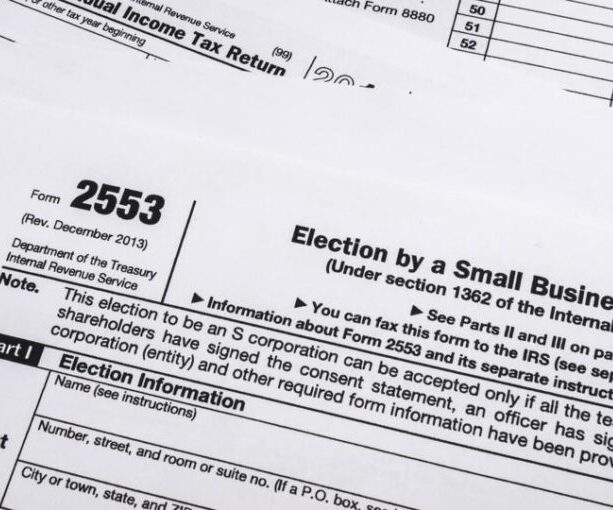Electing S-Corp status allows LLCs and corporations to avoid double taxation by passing income, deductions, and credits directly to owners. For LLCs in particular, this election can significantly reduce self-employment tax — members only pay it on their wages, not on the business’s full profits. This strategic classification helps streamline your taxes and enhance how you distribute profits.

Electing S-Corp status can help you avoid double taxation and reduce your self-employment tax burden (up to 15.3%). It also enhances your business’s credibility and professionalism — making your company more appealing to clients, lenders, and investors. The structure gives you more flexibility in compensation, operations, and strategic planning, which is ideal for growth-focused businesses.
We guide you through the S-Corp process to ensure your business maximizes its tax savings. We’ll help you reduce double taxation and minimize self-employment taxes — with clarity on how it affects your income and structure.
Your business is unique — and your S-Corp strategy should be too. We personalize the election process to align with your financial goals, structure, and growth plans, ensuring your S-Corp status supports long-term scalability.
We handle the full S-Corp election process — from preparing IRS Form 2553 to ensuring full legal compliance. Our team makes sure nothing falls through the cracks, providing a hassle-free experience from start to finish.
An S-Corp election is a special IRS tax classification that allows a business to pass income, losses, deductions, and credits directly to its shareholders—avoiding corporate-level taxation. It’s commonly used by small businesses to reduce overall tax liability.
To qualify for S-Corp status, your business must:
The S-Corp election may be applied retroactively, depending on your specific situation. Generally, it must be filed within 75 days of the start of the calendar year or the beginning of your business to be effective for that year. Otherwise, it will take effect the following tax year.
After electing S-Corp status, your business must:
Yes. A single-member or multi-member LLC can elect S-Corp status by filing Form 2553. This election does not change your legal structure—only how your business is taxed.
As an owner-employee, you must pay yourself a “reasonable salary” subject to payroll taxes. Additional profits can be distributed as dividends, which are not subject to self-employment taxes.
A Full-Service Accounting Firm Simplifying Your Tax and Business Needs with Expertise and Care.
EXCELLENTTrustindex verifies that the original source of the review is Google. Eric & Andresa muito obrigado pela atenção! Competência, atenção , paciência e informativo. Nos ajudaram muito com todas as dúvidas ,processo e pagamentos Recomendo demais ! Com certeza vamos usar seus serviços de novo Eric & Andresa, thank you very much for your attention! Competence, attention, patience and information. You helped us a lot with all the questions, processes and payments I highly recommend you! We will definitely use your services againTrustindex verifies that the original source of the review is Google. The best experience ever filing taxes! Highly recommend this location! They are fast and have great customer service!Trustindex verifies that the original source of the review is Google. The tax preparers at SVA are professionals, friendly, and precise in processing tax payers' files promptly.Trustindex verifies that the original source of the review is Google. ExcelenteTrustindex verifies that the original source of the review is Google. I couldn’t be more satisfied with Andressa’s service at SVA Tax Services! She was incredibly attentive, professional, and extremely quick in handling my last-minute taxes. In a time of urgency, she not only met the deadline but also ensured everything was accurate and well-explained. Andressa made the whole process feel easy with her clarity and dedication. Her careful approach and excellent service gave me complete confidence and peace of mind. Without a doubt, she will be my go-to for any accounting needs in the future. I highly recommend her!Trustindex verifies that the original source of the review is Google. Very fast professional serviceTrustindex verifies that the original source of the review is Google. Eles sempre fazem um excelente trabalho, estamos super satisfeitos. O portal implementado este ano, tornou tudo ainda mais simplificado e rápido. Até ano que vem! Obrigada